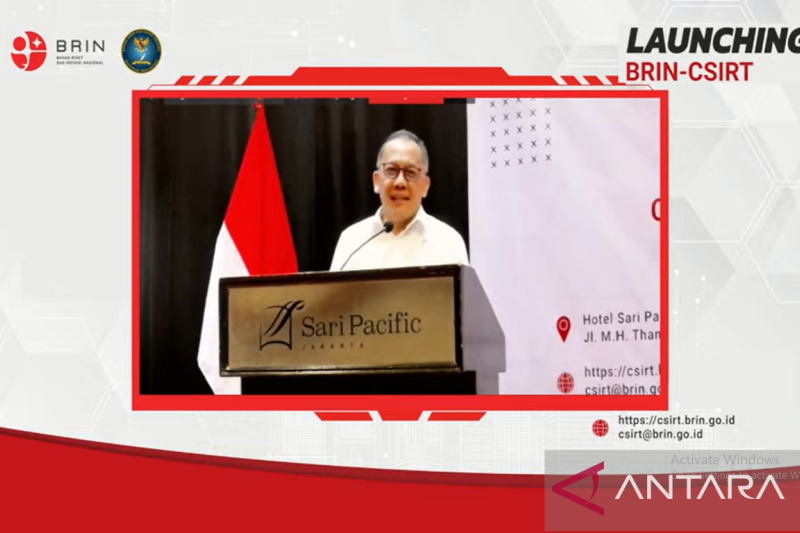National research agency forms CSIRT to prevent cyber attacks
To this end, strengthening the electronic system security in BRIN is necessary, including in the handling of cyber incidents
Jakarta (ANTARA) – The National Research and Innovation Agency (BRIN) formed and unveiled the Computer Security Incident Response Team (CSIRT) within the agency to protect the electronic system security from cyber threats and attacks.
The CSIRT had actually existed before, but it had not been integrated, Head of BRIN Laksana Tri Handoko stated during the BRIN-CSIRT virtual unveiling on Monday.
BRIN-CSIRT was formed owing to BRIN’s cooperation with the National Cyber and Encryption Agency (BSSN). The agency will continue to boost its capability to bolster cybersecurity within BRIN, he remarked.
Moreover, the BRIN is ready to become BSSN’s partner for cybersecurity from the standpoint of technological, information system, research and innovation result, as well as human resources.
Related news: BRIN, archaeologist studying recently unearthed temple site in Batang
Meanwhile, during the event, Head of BSSN Hinsa Saburian noted that the most frequent attacks occurring in BRIN are malware attacks and traffic anomaly status.
“To this end, strengthening the electronic system security in BRIN is necessary, including in the handling of cyber incidents,” he remarked.
The formation of BRIN-CSIRT is expected to form a safe and orderly electronic system that can support the realization of a reliable, professional, and innovative BRIN with integrity.
Related news: BRIN urges private sector to invest in space sector
Moreover, through the formation of CSIRT, BRIN is also expected to improve its capability in cybersecurity incident handling within its institution. To this end, the BSSN is ready to support the strengthening of the cyber incident handling capability in BRIN.
The high usage of information and communication technology is directly proportional to security risks and threats.
As a result, an organization should always anticipate cyber threats and attacks through cyber incident handling readiness by forming the CSIRT.
The CSIRT should be able to resolve cyber security challenges by improving the capability of the team that has been formed.
Related news: Huawei,…



